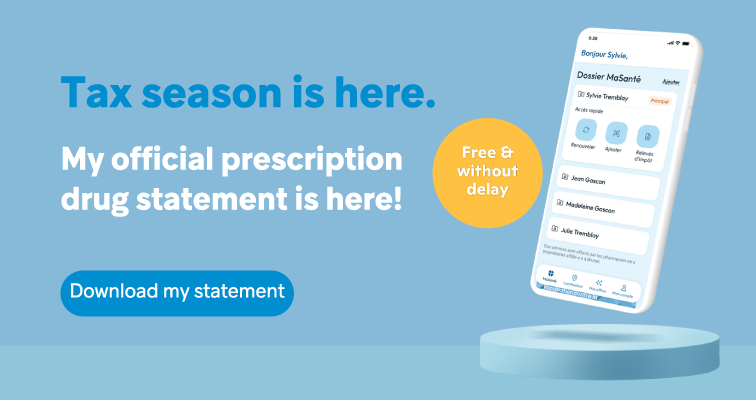We should be happiest in summer, but for many people summer is synonymous with a number of symptoms, including itchy eyes, runny nose, and constant sneezing. Can it be that you suffer from seasonal allergies?

What are seasonal allergies?
An allergy is an excessive reaction by the immune system to a substance that it perceives as alien. This alien substance is known as an “allergen.” In its presence, the body releases histamine, which causes unpleasant symptoms (which is why people with allergies take antihistamines). Pollen is the allergen that causes seasonal allergy. In Canada, ragweed is the leading source of pollen. That is why allergies appear periodically, mainly in spring and summer.
Seasonal allergies go by several other names, including allergic rhinitis, seasonal rhinitis, and hay fever. About 20 to 25% of Canadians suffer from allergic rhinitis – you’re not alone! The exact causes of allergic rhinitis are unknown, but your genetic background may be a key factor.
What are the symptoms of seasonal allergies?
The most frequent reactions include:
- Runny nose
- Sneezing
- Stinging sensation in the throat
- Nasal congestion
- Conjunctivitis (tearing, redness, and itchiness around the eyes)
According to many specialists, symptoms are more prevalent now than they used to be. If you suffer from asthma, pollen can aggravate your symptoms. If that’s the case, please see your physician or pharmacist.
What should I do if I think I have seasonal allergies?
If, like many Canadians, you suffer from this condition, you need to know that there is no definitive cure for it. Fortunately, however, symptoms can be relieved through the use of appropriate over-the-counter medication. There are several oral medications designed to lessen allergic reactions effectively and safely. They are known as antihistamines. You can also use eye drops, which are available behind the counter at the pharmacy. In certain cases, prescription medication can be used. Your pharmacist can help you choose the best treatment option for your condition, background, and medical history, taking into account the medication you may be currently taking.
Means of prevention
Here are some tips you can use on a daily basis to reduce your seasonal allergies:
- Keep doors and windows closed to avoid coming into contact with pollen
- In the car, keep the windows closed and use the air-conditioning
- Don’t mow the lawn yourself
- Avoid walking in the fields and woods, especially on windy days when there is more pollen in the air
- Wear sunglasses when you are outside
- After outdoor activities, take a shower to get rid of pollen on your skin, and change your clothes when you get dressed
- Don’t dry your clothes on a clothesline: pollen may settle on them
- Wash your hands more frequently, especially when returning from outdoors
- When you have planned an outdoor activity, find out about pollen levels; choose periods when pollen levels are lower
- Always have antihistamines close at hand. Don’t wait until symptoms are acute – or pharmacies are closed – before deciding to take medication
When should I see a doctor?
Often, managing seasonal allergies does not require seeing a physician – your pharmacist can help you. However, you may want to see your doctor in the following cases:
- If your symptoms persist despite the use of over-the-counter medication and disrupt your daily activities or quality of life
- If you feel side effects after taking over-the-counter medication
- If your allergies aggravate an existing medical condition, such as asthma
- If you develop an infection, such as sinusitis or otitis
Enjoying summer despite seasonal allergies
Seasonal allergies are usually brief and harmless, but they can negatively affect your quality of life. If you think you have seasonal allergies and would like to reduce their impact on you, feel free to speak to your pharmacist. He or she can provide valuable advice and help you find the right treatment. Don’t miss out on summer – it comes only once a year!
